Watch One the Most Powerful Rockets in History Take Off
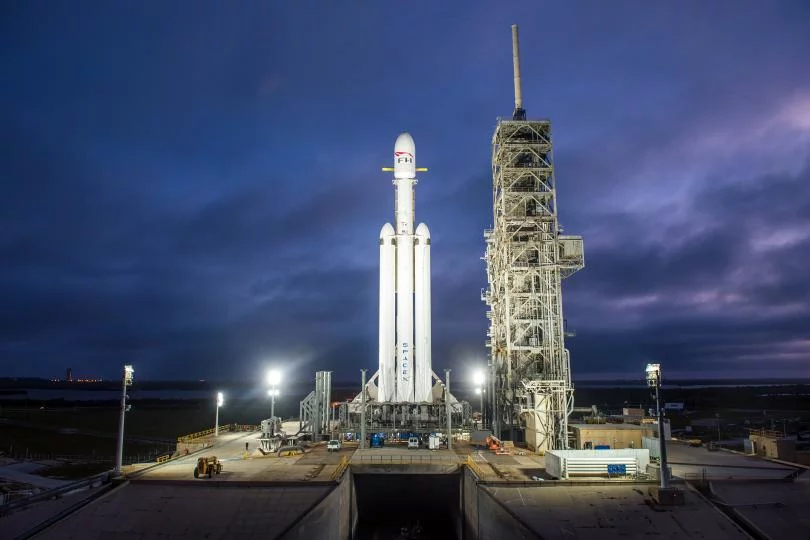
If you're not familiar with SpaceX by now, maybe Tuesday's launch of the SpaceX Falcon Heavy will spark your interest. SpaceX, a private company that builds and launches rockets/spacecraft, will test-flight their most powerful rocket yet (and one of the most powerful rockets period) – the Falcon Heavy. Success or failure, it will be an awesome and potentially historical launch….
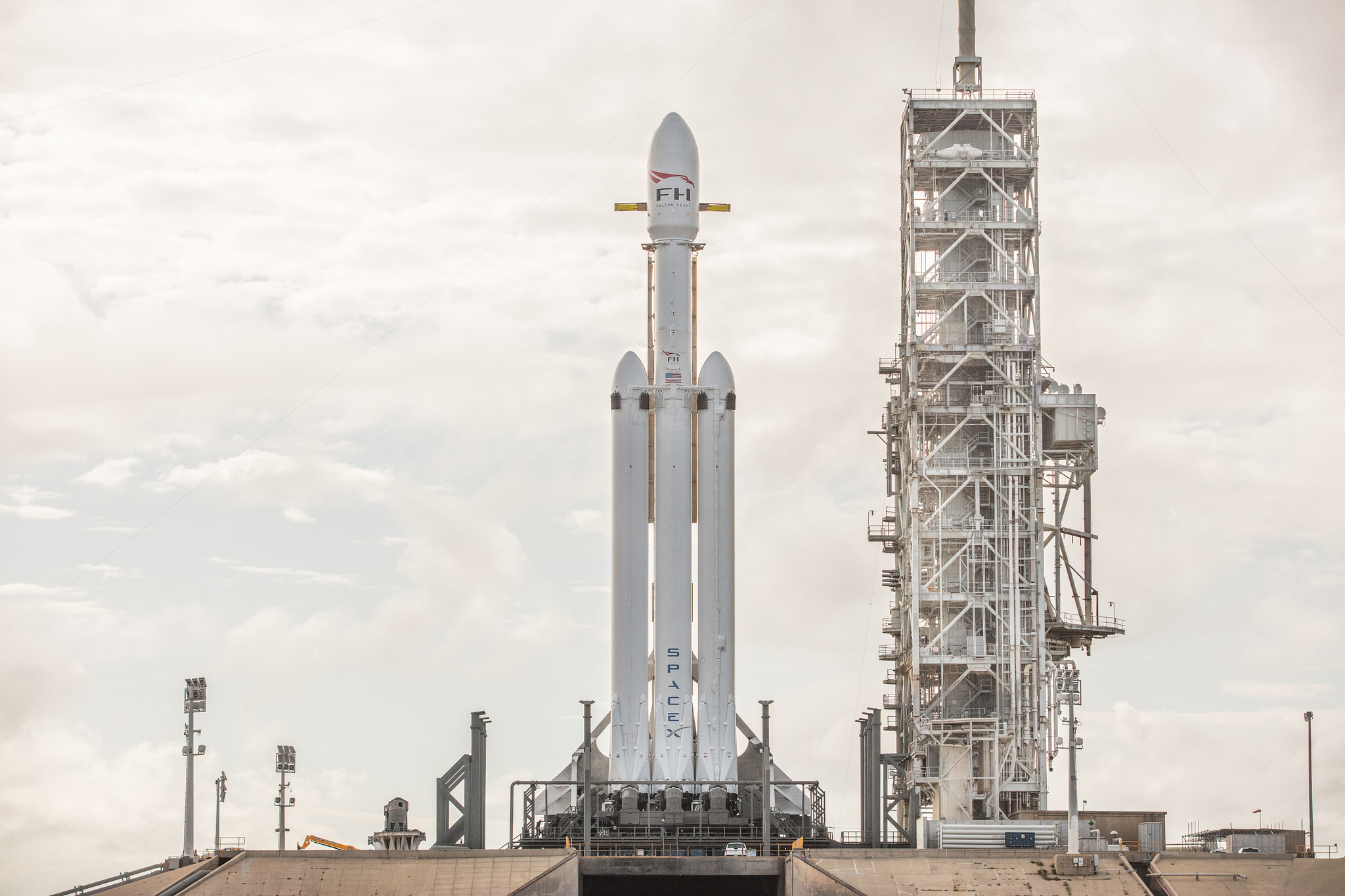
This launch is for SpaceX's Falcon Heavy, a massive rocket that SpaceX hopes to be reusable, cheaper than current rockets, and eventually carry us to Mars.
Falcon Heavy is scheduled to take off Tuesday, February 6th at 2:50PM EST from Cape Canaveral, Florida.The launch can be viewed live from SpaceX website.
UPDATE 2: Launch locked in for 1545 hours (3:45pm) EST.
Currently there are “No constraints” which means, at the moment, nothing is stopping a launch. Obviously weather/wind can change. Cross your fingers it all holds!
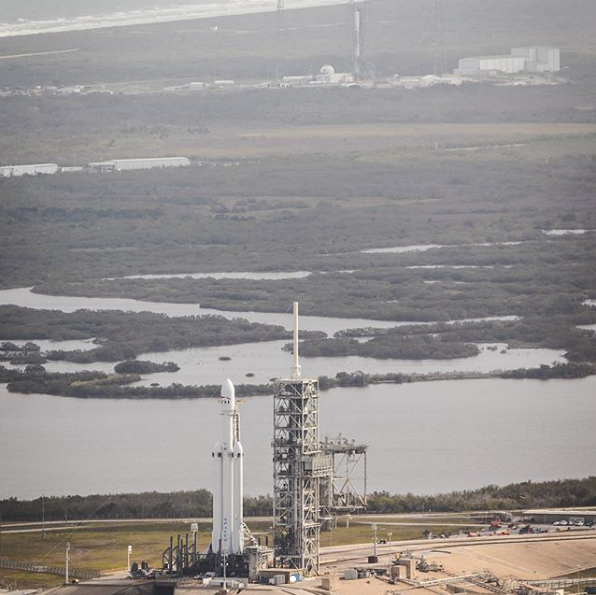
SpaceX is owned by billionaire inventor and entrepreneur, Elon Musk. You may know him from a little car company called Tesla. SpaceX has been sending up rockets for years now, but the reason they're a big deal is because their rockets come back. In order to make space travel (resupplying the International Space Station, sending up satellites, eventual travel to mars, etc) sustainable, we need to have powerful, efficient equipment that's affordable. In the past, when a rocket booster went up, it always came down… and was destroyed. Not very efficient or affordable.
SpaceX has made it so their rockets launch into space, deploy cargo, descend to a specific spot where they, ideally, land safely, and then get cleaned up for another trip. One landing spot is even on a floating drone ship in the middle of the ocean(!) The science behind it is fascinating, but even just a casual viewer can see how incredible one of those launches/landings is to watch.
The reason tomorrows launch of the Falcon Heavy (named after Star Wars' Millennium Falcon) is so awesome, and potentially historical, is twofold:
Success
SpaceX and Elon Musk have already set the bar low for this launch. It'll be the first time they're sending up this massive rocket. It's not even carrying any important cargo: except Elon Musk's personal Tesla Roadster. A successful launch (launch, deployment of cargo, return), is the best-case scenario and the part that makes history. It'll be the most powerful, reusable rocket in operation. When a rocket brings cargo into “space”, what that usually means is that it is deploying a satellite (or supplies to the ISS) into low earth orbit – the area around Earth where objects won't come crashing down, but also won't float away.
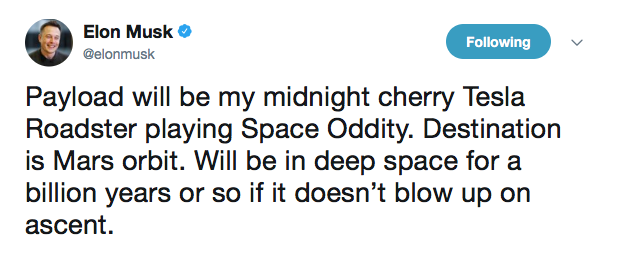
It takes a lot of energy and power to lift mass off of Earth. The Falcon Heavy will be able to lift 140,660 pounds of payload into orbit. That's about the equivalent of a fully loaded 737 with passengers, luggage, and fuel. At liftoff, the thrust will equal approximately eighteen 747 aircraft at full power.1 Yowza. Here's a comparison of the rest of humanities heavy-lift vehicles:

Only the Saturn V rocket, last flown in '73, delivered more payload than Falcon Heavy.
There are a lot of reasons a reusable rocket is important for space travel. Tim Urban of Wait, But Why has some great articles on the entire Elon/SpaceX/rocket subject.
Failure
SpaceX isn't a stranger to failure. They've tested and crashed a few rockets in the past. If you have a moment, check out some of the crazy footage. It's Michael Bay explosion level awesome.
While we hope the Falcon Heavy has a successful trip, in the even it does go south, get ready. If you watched any of the previous successful or failed launches, you'll see that they are a single rocket: cargo on the tippy top and 9 Merlin engines on the bottom. The Falcon Heavy is three of those rockets bolted together for a total of 27 engines… wow. If this fails during any part of the launch, we're in for a fireworks show.
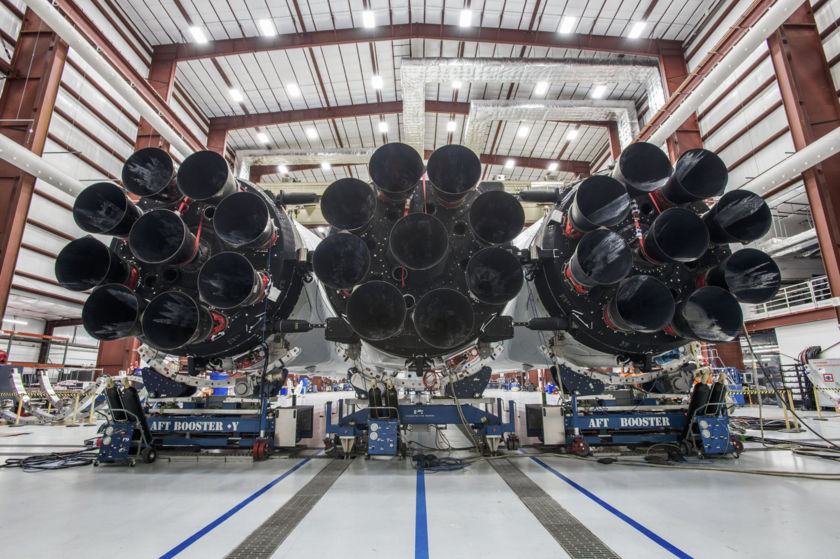
Either way, do not miss this launch. SpaceX broadcasts all their launches live and they've got good production value. Someone from SpaceX will walk the viewer through the process right before launch, give info about the rocket, and continually update on what's happening. It's actually a pretty great way to learn about some basic space exploration stuff.
The entire SpaceX story, along with all their rockets, and where space exploration is headed is really neat for anyone interested where humanity is headed regarding space exploration. Read more about it directly from their site. The jargon and sciency, space aspects are broken down well for the layman.
So, get ready and pay attention! Make sure you tune it to the launch – even if you can't watch the entire mission.
More info on SpaceX's Twitter or website.









